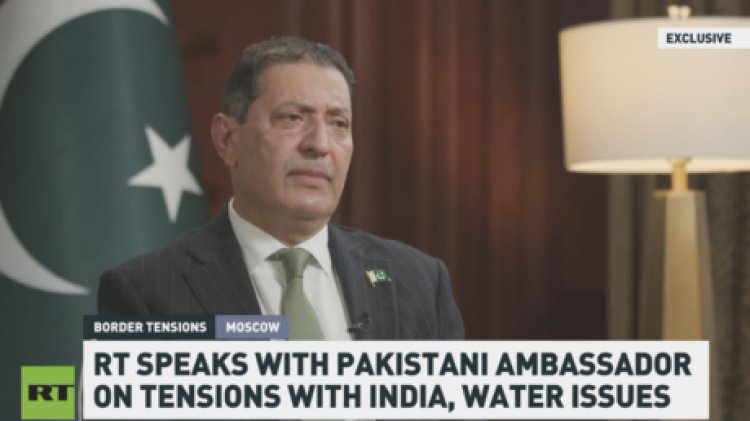Pakistan to employ 'full spectrum of power' in case of attack, says envoy
The ambassador of Pakistan to Russia expressed hope for a “deescalation of tensions” with India amid concerns regarding the possibility of military action. Muhammad Khalid Jamali stated that Pakistan would respond with the “full spectrum of...

Muhammad Khalid Jamali stated that Pakistan would respond with the “full spectrum of power” if India were to attack or disrupt critical water supplies. This assertion follows heightened tensions between the two nuclear-armed nations after a deadly assault on civilians in Kashmir.
During an interview with RTN on Saturday, Jamali mentioned that Pakistani intelligence has gathered evidence indicating planned military aggression from New Delhi. India has accused Pakistan of supporting cross-border terrorism on its territory. “There are some other leaked documents whereby it has been decided to strike certain areas of Pakistan,” he said. “So that makes us feel that this is going to happen and it’s imminent.”
The ambassador emphasized Pakistan's readiness to counter any aggression: “We in Pakistan will use the full spectrum of power, both conventional and nuclear.”
He reiterated Islamabad's stance on the Indus Water Treaty, a crucial agreement between India and Pakistan that New Delhi suspended last week in response to the attack. “Any attempt to usurp the water of the lower riparian, or to stop it, or to divert it would be an act of war against Pakistan and would be responded to with full force of power including full spectrum of power,” Jamali stated.
Despite the tensions, Jamali called for de-escalation, stressing the risks involved given that both nations possess nuclear weapons. “As the two countries are two nuclear powers, there is all the more need to deescalate the tensions.” Pakistan has previously sought “neutral and credible investigations” into the Kashmir attack. “I think the role of the international community comes in. And in this regard, we expect that powers like China and Russia can participate in those investigations,” he added.
In response to the heightened tensions, New Delhi reduced staff at the Pakistani High Commission, expelled Pakistani diplomats, and closed its land border, while Islamabad reciprocated these measures. The Indian government also halted visa services for Pakistani nationals, and on Saturday announced additional measures to further downgrade already limited trade ties with Pakistan.
The terrorist attack occurred on April 22 in Baisaran Valley, a popular tourist area about 6 km from Pahalgam. The Resistance Front, a militant group believed to have links to the Pakistani-based Lashkar-e-Taiba, has reportedly claimed responsibility, leading New Delhi to accuse Islamabad of enabling cross-border terrorism. Police in Kashmir have indicated they have identified three suspects in the attack, two of whom are Pakistani nationals.
Alejandro Jose Martinez for TROIB News












